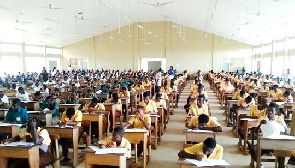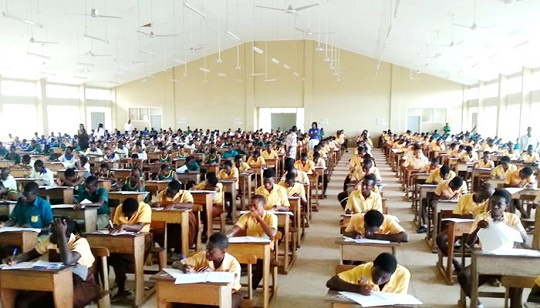 The implications go far beyond education policy
The implications go far beyond education policy
There is a growing and troubling phenomenon in Ghana’s education system—one that goes far deeper than mere statistics or pass rates. It is the quiet but pervasive normalisation of exam malpractice, particularly in the wake of the Free Senior High School (Free SHS) policy.
What began as a noble intervention to democratize access to secondary education is, in some corners, breeding a culture of dishonesty that threatens the very soul of the system it was meant to improve.
I was recently struck by a conversation with a friend who owns a private school in a Region of the country. He recounted how, during national exams, some parents and local authorities jointly raised funds—not to invest in better resources or tutoring—but to bribe invigilators and police officers. The goal? To ensure that students were allowed to cheat en masse.
According to him, this practice has become so routine that many no longer see it as wrongdoing; it is simply “how things are done.”
This is not an isolated story. Another friend shared a related experience: he once employed a house help from the same region who had excellent BECE results on paper but could hardly construct a sentence in English. When they probed further, she confessed that during the exams, invigilators had openly provided answers, and the students had merely copied them.
Then there is the now-viral video of a former BECE candidate casually admitting on camera that they were helped to cheat by the invigilators themselves. There was no shame, no hint of wrongdoing—just the matter-of-fact confidence of someone describing something that was expected and accepted.
These anecdotes, disturbing as they are, reflect a broader institutional failure. And one cannot help but connect the dots: the introduction of Free SHS came with widespread concern that increasing enrollment would dilute quality.
Critics warned that the system lacked the infrastructure, teaching staff, and resources to absorb such a dramatic expansion. In response, it appears the state became desperate to prove that quality had not been compromised.
Results needed to improve. Pass rates had to be seen rising. And so, either directly or indirectly, cheating was tolerated—or worse, quietly encouraged—as a means of political vindication.
The implications go far beyond education policy. What we are witnessing is the moral corrosion of a generation. We are not just compromising academic standards; we are eroding integrity at the root. Children are being taught, not explicitly but through experience, that the path to success is not through diligence or honesty, but through manipulation and collusion.
In philosophical terms, this is a betrayal of education’s higher purpose. Education is not merely about passing exams or qualifying for the next stage. It is about forming character, cultivating discipline, and teaching young minds the virtues that sustain a healthy society.
When we turn a blind eye to cheating—or worse, institutionalize it—we are sending a message that truth is negotiable, that right and wrong are malleable, and that ethical shortcuts are acceptable if they yield desirable outcomes.
What kind of citizen does such a system produce? One who is well-versed in appearances, skilled in gaming the system, but hollow at the core. One who knows how to pass a test but not how to solve a problem. One who can recite rules but has never been taught why they matter.
We are in danger of raising a generation that is intellectually shallow, morally indifferent, and socially fragile. And unless this culture is confronted—courageously and comprehensively—we may one day find that the greatest threat to our national development is not ignorance, but educated dishonesty.
Education must do more than produce results. It must produce people—whole people, principled people, people who can carry the burdens of leadership and citizenship with integrity. Until then, we may be winning exams and losing the very essence of what it means to learn.


